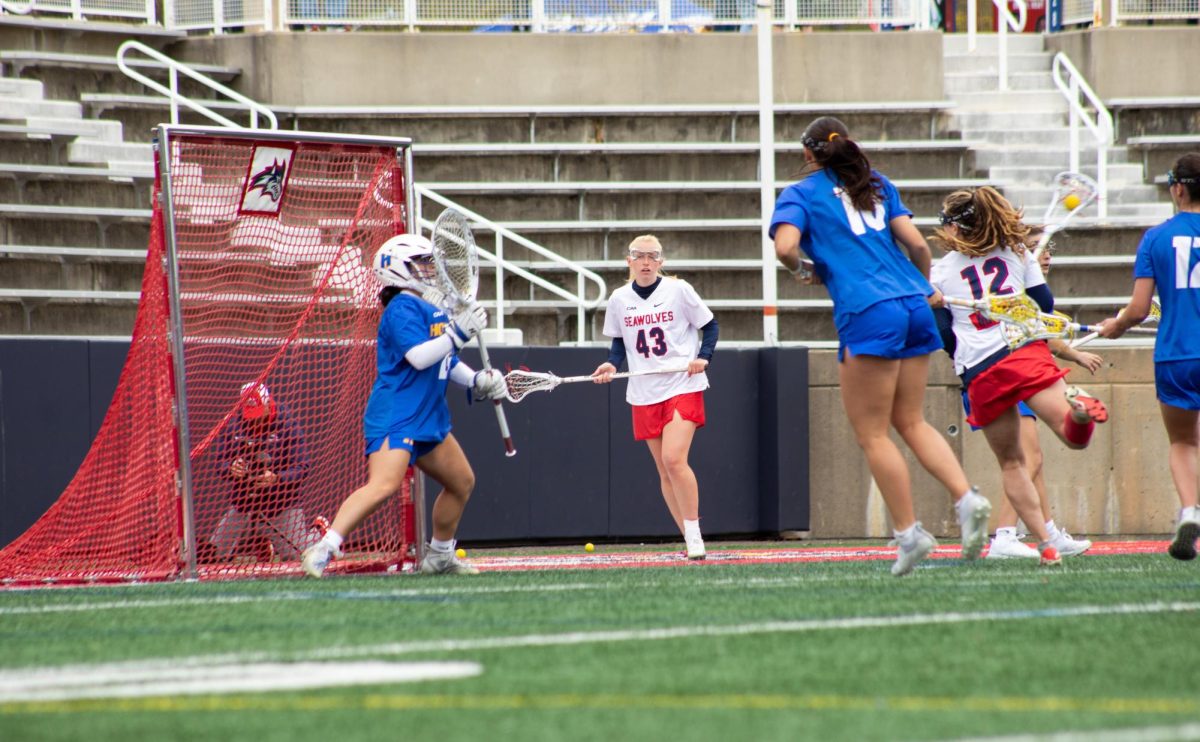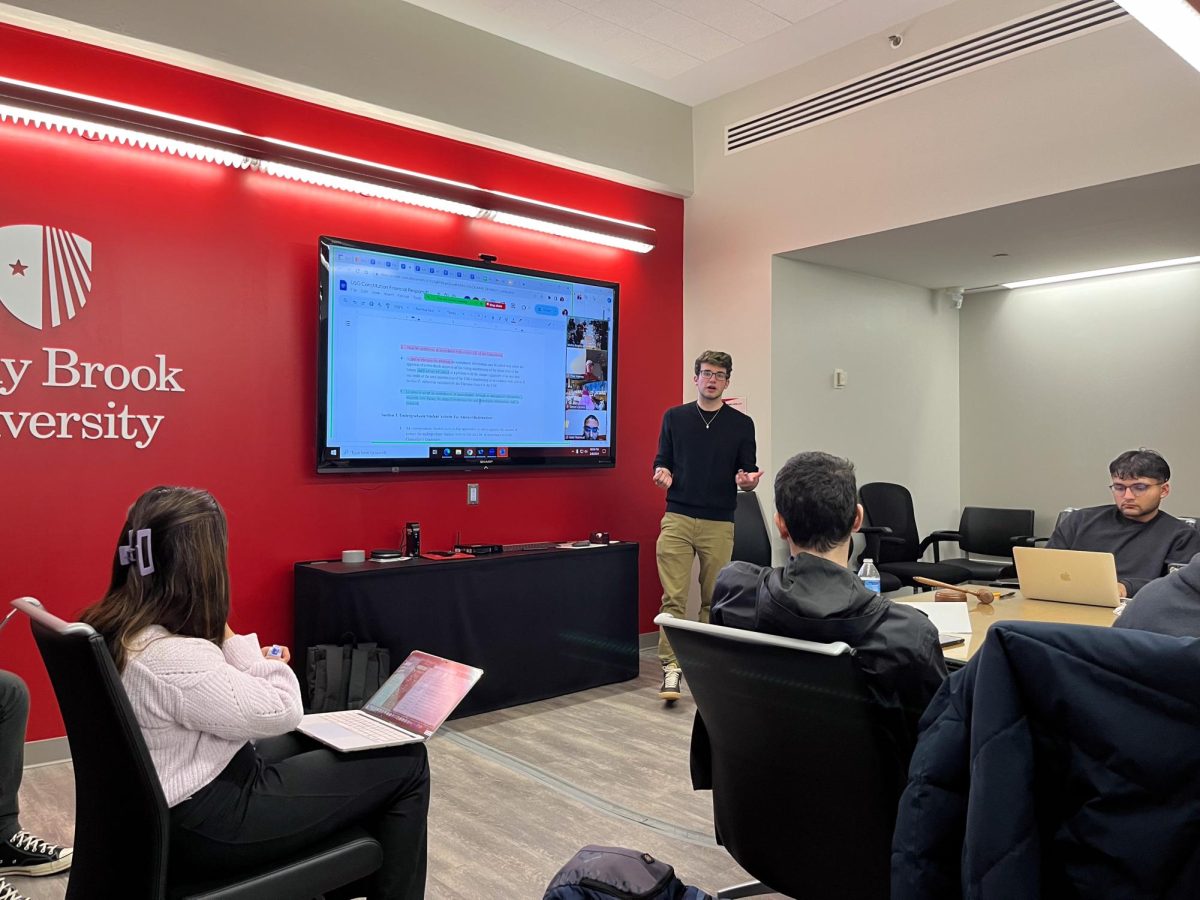SB Loses Shootout to Manhattan
On Nov. 24 Stony Brook’s Women’s Basketball team faced the Manhattan Jasper’s. In a high scoring affair, Stony Brook lost by a final score of 74-68.
The Jasper’s held the lead most of the game, including a game high 12 point lead at half (44-32). Stony Brook was always in striking distance and managed to take a 57-56 lead with 6:57, after a layup by Jodie Plikus. However, they were only able to maintain the lead for 35 seconds and were never able to recover from there.
Some notable players for the Seawolve’s were Jodie Plikus who scored a team high 14 points, Aly Young who scored 12 points and grabbed 5 rebounds. Morgan Patrick had 8 points, 4 assists, and 4 blocks.
Although they lost, this was their best shooting performance of the season. In the first half they shot an impressive 58.3% from the field, and finished the game shooting 49.0%. They also out-rebounded the Jaspers 20-16. Turnovers and fouls were the downfall for the Seawolves, ending the game with 20 turnovers, and 20 fouls. This allowed the Jaspers to take 24 foul shots, where they shot a respectable 20-24 (83.3%) from the free-throw line. So while the Seawolves out-shot and out-rebound the Jaspers, Manhattan was able to make up their shortcomings at the free throw line, giving them the win.
Seawolves Lose Third Straight to Quinnipiac
Stony Brook’s Women’s Basketball traveled to Quinnipiac this past Thursday and fell to the Bobcats by a final score of 58-41. The Seawolves were outscored 41-18 in the first half and the 23 point deficit was too large to overcome.
Although they were able to put up an impressive 42 shots in the first half, Stony Brook only shot 19% from the field. Another negative was the 0-8 shooting from behind the 3 point line.
In the second half, Stony Brook played much better defensively, only allowing 17 points off 25% shooting. The Seawolves also played better offensively but their 23 points wasn’t enough.
In total the Seawolves were able to out-rebound the Bobcats 56-42 and they took 26 more shots (79-53), but their shots just didn’t fall as they shot as a team 22.8% from the field, including 0-12 from behind the 3 point line.
Some notable players for the Seawolves were Morgan Patrick, who scored six points, while tallying 11 rebounds. Kirsten Jeter who led the team with seven points.
Their next game is against Tuesday, December 4th, where they will travel for their 3rd straight road game, where they will face Long Island Rival Hofstra














Michael H Leiman • Nov 5, 2023 at 7:57 pm
A lot of good stats but nothing to really bring the games to life. Makes me wonder if the reporter was actually at them?